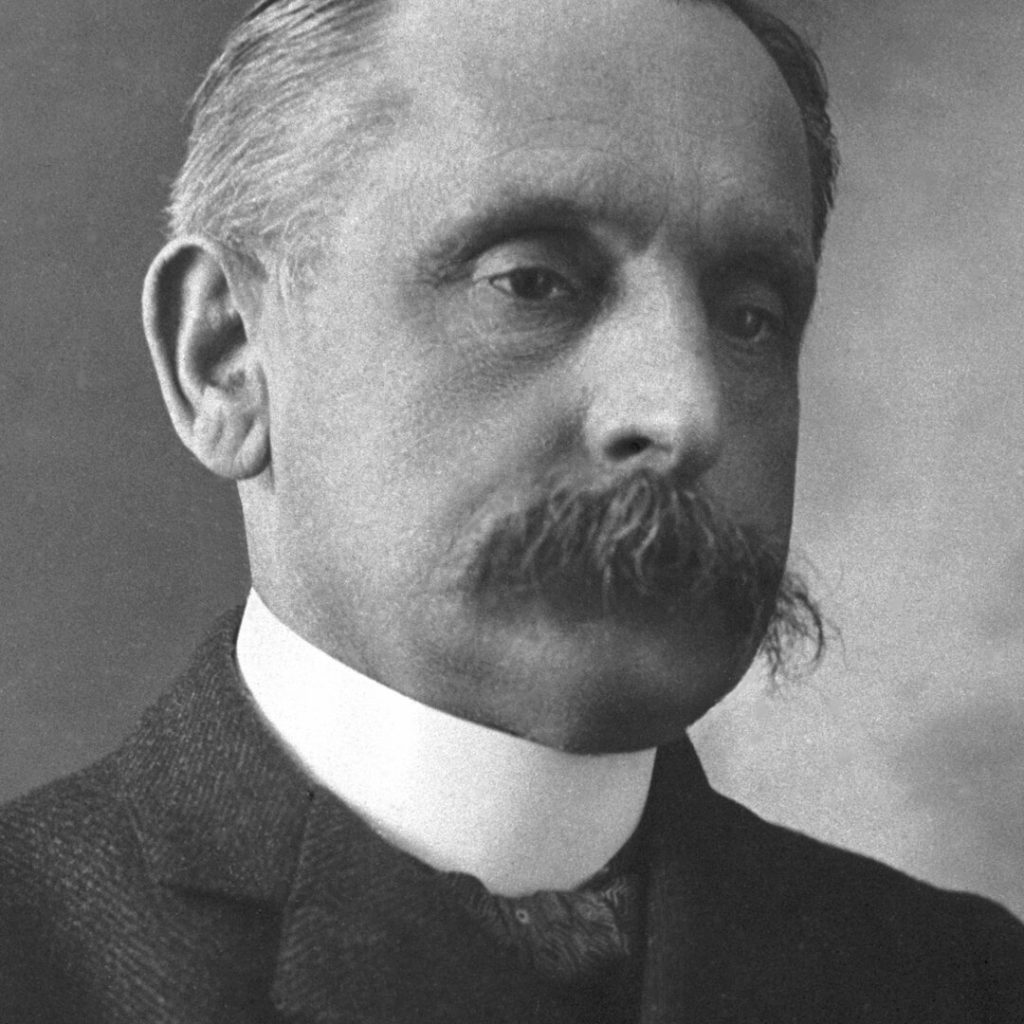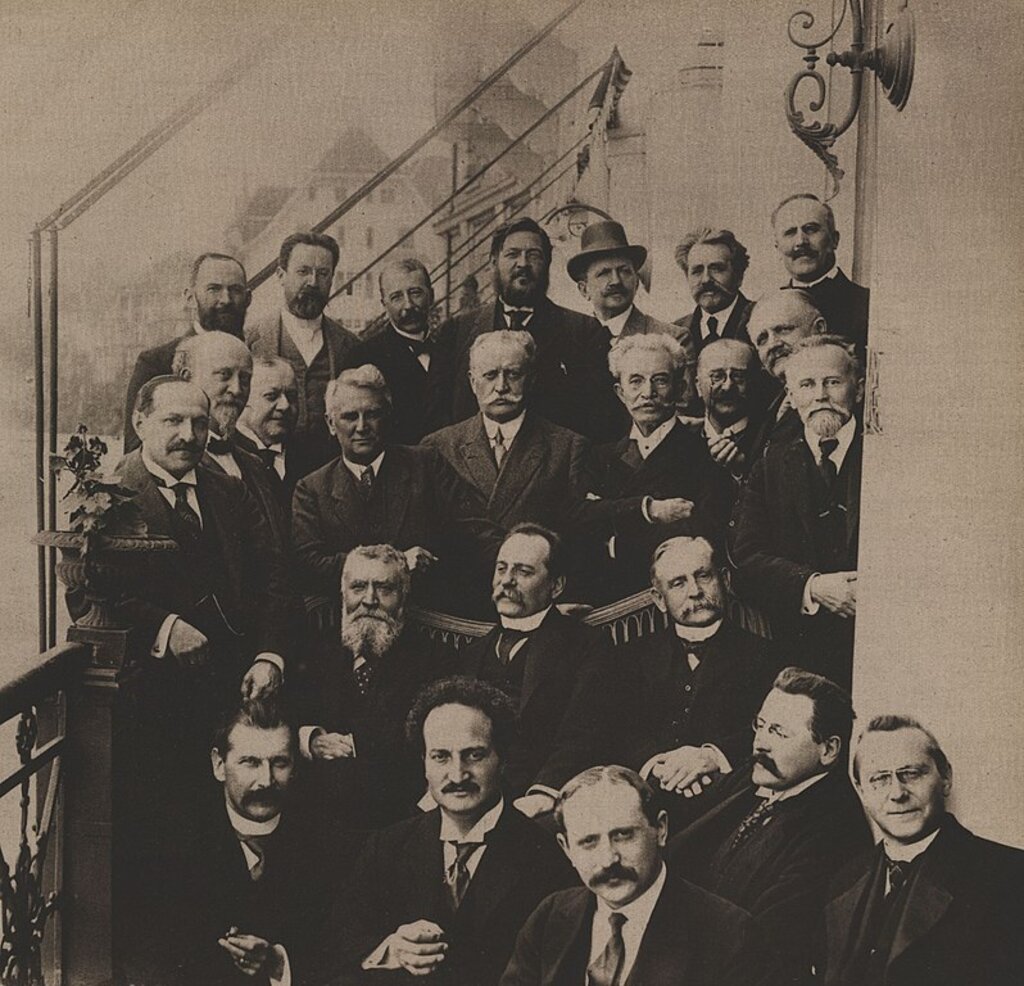Paul Henri d'Estournelles de Constant
Speed read
Paul d’Estournelles de Constant was awarded the Nobel Peace Prize, jointly with Auguste Beernaert, for his prominent position in the international movement for peace and arbitration.

Full name: Paul Henri Benjamin Balluet d’Estournelles de Constant, Baron de Constant de Rebecque
Born: 22 November 1852, La Flèche, France
Died: May 15, 1924, Paris, France
Date awarded: 10 December 1909
Diplomat, politician and internationalist
Despite his aristocratic title, Paul Henri d’Estournelles de Constant was a republican. He believed that the cultures of Europe should unite in a European federation, maintaining that a well-organised international society was the best guarantor of peace. Baron d’Estournelles began his career as a diplomat, but in 1895 he was elected to the Chamber of Deputies. He served the last 20 years of his life as a senator. d’Estournelles advocated binding arbitration between nations. On a visit to the USA, he persuaded President Theodore Roosevelt to be the first to use the Permanent Court of Arbitration in The Hague. He also encouraged Andrew Carnegie to donate money for the Peace Palace in The Hague. Prior to WWI, he sought to achieve reconciliation between Germany and France.
"As the self-appointed chargé d’affaires of the peace effort, he seeks with no small measure of success to obtain the concessions that are possible in the moment."
Ebbe Hertzberg, Adviser to the Nobel Committee, 1904.
Conciliation internationale
In the spring of 1905, d’Estournelles founded this elite organisation to act as the “Upper House of the peace movement.” Joining him were painter Claude Monet, lyric poet Sully Proudhomme, philosopher Henri Bergson, literary historian Georg Brandes, peace advocate Bertha von Suttner and polar explorer Fridtjof Nansen. He also succeeded in establishing cooperation with Nicholas Murray Butler (USA), president of Columbia University and director of the Carnegie Endowment for International Peace. Conciliation Internationale thus emerged as a link between the peace movements across the Atlantic.
"d’Estournelles’ long-range solution for European problems was a political one – the formation of a European union."
Nobel Lectures Peace, 1972, Biography, page 271.
He saved the permanent court of arbitration
During the Peace Conference at the Haag in 1899, d’Estournelles was one of the main proponents of internationally binding agreements. If war threatened, the nation states should accept neutral judges’ decisions (arbitration). The conference agreed to establish such a court at the Haag. The nation states would have a moral duty to submit conflicts here. It was a step in the right direction for d’Estournelles, but months passed and the court remained unused. Then he took hand. At a meeting with Theodore Roosevelt in 1902, he persuaded the President to allow a conflict between the USA and Mexico to be heard there. The Permanent Court of Arbitration thus had two later Nobel Peace Prize laureates to assist in its birth.

Learn more
Paul Henri Benjamin Balluet, Baron d’Estournelles de Constant de Rebecque (November 22, 1852 – May 15, 1924), the son of an aristocratic family tracing its ancestry back to the Crusaders, was born at La Flèche in the Sarthe district of the Loire valley ...
Disclaimer: Every effort has been made by the publisher to credit organisations and individuals with regard to the supply of photographs. Please notify the publishers regarding corrections.
Nobel Prizes and laureates
Six prizes were awarded for achievements that have conferred the greatest benefit to humankind. The 12 laureates' work and discoveries range from proteins' structures and machine learning to fighting for a world free of nuclear weapons.
See them all presented here.
